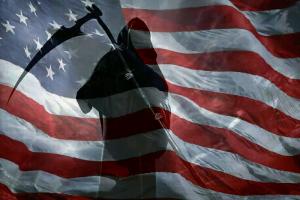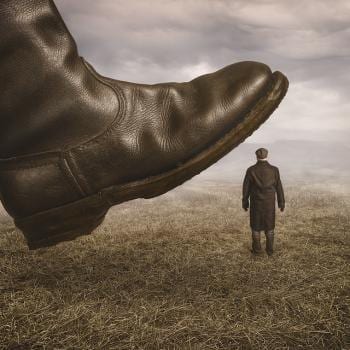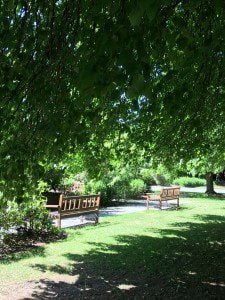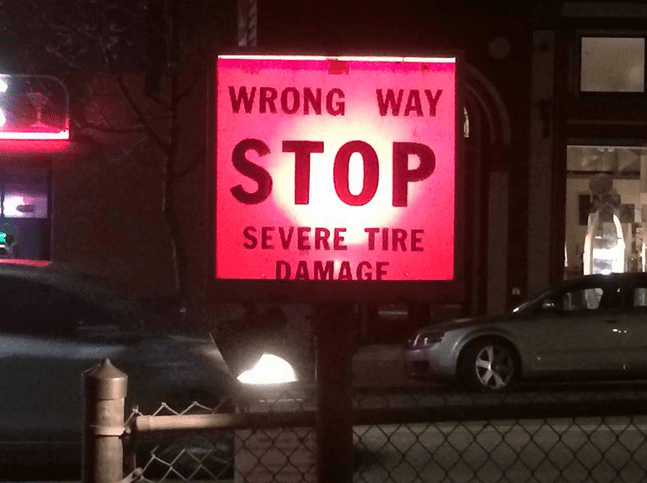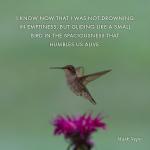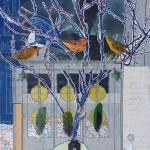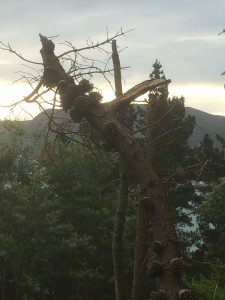 What is the Atonement? I asked my elder foster brother Jeff.
What is the Atonement? I asked my elder foster brother Jeff.
I was 16. During the preceding six years I had been on an enforced hiatus from church activity. I had been trapped, the child and stepchild of a failing mixed faith marriage where my step-father was on a crusade to rid the world of Mormons. Now I was back with the Mormons he despised so much, choosing to live away from my mother, my half-siblings, him and his scorn. I now had a Mormon family of my choice rather than parents of my misfortune and at 16 years old I had experienced a spiritual epiphany, was finally settled and full of wonder and questions. I was a seeker.
We spoke deep into the night as the idea of my ‘being made clean again’ spread through me like angels wings. I read Spencer W. Kimball, The Miracle of Forgiveness, and there it was, a catalogue of my sins, and there it was, steps to my redemption. I hurried to the Bishop’s office as soon as I could and unburdened myself, speaking my inventory of shame, unraveling from the weight of my young self’s early adolescent improbity – all of it, confessed. He listened, questioned respectfully, and spoke kindly offering me the forgiveness of the church and the assurance that Heavenly Father rejoiced in my repentance, that Jesus’ suffering could extinguish my own. I had passed on my self-reproach and my spiritual disgrace to Christ and he would be my advocate with the father. I was clean – my jumbled life bought into coherence. He had bought me, and I was His. As I walked out of his office that winter’s night in 1984 I could taste the sweetness of forgiveness and the ecstasy of spiritual liberation. I was accepted.
As the warmth of the fire of Jesus burned within me, the Church of Jesus Christ of Latter-day Saints quickly became my Southern Cross, my true North, my west wind and my easterly. In truth it had always been that way. I was the brown bastard child of a white teen mother, who, eschewed in good society, found the Mormons a safe haven from a world of judgment. In the summer heat of 1966 my blonde adolescent mother and my ‘Native’ married father conceived me in an adulterous coupling. Both are now dead, prematurely placing down their mortal coils at the altar of poverty and social struggle for no other reason than that either they seemed not to know better, or if life had been teaching them lessons these were shrugged off as somebody else’s problem. Both of them immensely proud, heart breakingly poor and extraordinarily clever and talented. Their liaison lasted a very short time, but my father’s lasting gift to my mother and I was the religion of his birth and childhood. He had lapsed but as with those born into Mormonism his religion continued to have some claim upon him, so he introduced my mother to the missionaries and she became a member of the church of Jesus Christ of Latter-day Saints.
A 1967 ex-nuptial half-caste Mormon child citizen of a British colony must learn to breath underwater as the riptides of paradox swirl and pull. In my social world nothing had ever made sense to me, nothing that is but the love of a faith community that had made me theirs. Here among the Mormons I was safe. There were no hard edges or barbs. I grew up on the knee of Marcus Jones who plied me with Oddfellow mints and let me hold his earlobes. I grew up under the podium at 25 Fendalton Road, under the voices of those who proclaimed, I know that David O McKay is a prophet of God and then, I know that Joseph Fielding Smith is a prophet of God, and then, I know that Harold B Lee is a prophet of God, and then, I know that Spencer W. Kimball is a prophet of God. I grew up beside the organ pipes that swelled with the hymns of restoration and Zion. I grew up on the parquet tiled basketball court of the recreation hall. I grew up on the stage of that same hall in the glare of lights that gave each of us, no matter how meager our talent, the opportunity to bask in the applause of an appreciative crowd. I grew up in the steamy quiet closeness of the baptismal font where I basked in this ritual of personal transformation and community joy that saw me wet from the waters of my own rebirth at eight years of age. I grew up on the hard beige metal chairs of the primary classroom while diligent primary and Sunday School teachers wrestled to tell us the stories of Jesus with their flannel board kits and kind smiles. I grew up around people who smiled, laughed, cried, kissed and held each other in the noisy passages and hallways of the meetinghouse. I grew up in the shadow of death as one beloved brother or sister after another passed and we sang our good byes to the tune of ‘God Be with you til we meet again.’ I grew up amidst the sounds of children, the bleating of the newborn and the squawks of outraged toddlers who found the restraint of the pew too much for their restless bodies. I grew up in the bustle of missionaries, clean cut, smiling, and ageless. I grew up in love with Nephi, Moroni, Ammon and Alma. I grew up under the hands, the many hands of those who blessed me; in my illnesses, in my challenges, in my heartaches and in my joy. I grew up with the stories and narratives of pioneers who sacrificed all to walk across the plains of a vast and distant continent to Utah – to Utah. I grew up believing that that white temple on the hill in Hamilton was where all of my future happiness would be found.
Against all odds being the brown bastard child of a teen mother was an exquisite joy.
Become a gospel scholar, said Marion, my foster mother.
And so I did. Now the foster child of a Mormon family, my 16 year old self was hungry to know all there was to know in order to understand the religion that I loved, the Jesus who proclaimed this church His, and the God who spoke through white men from Utah. I wanted to know it all, to bring the world of my developing teenage mind into sympathy with the pleasure of my overflowing spiritual feeling and my blossoming testimony. But this aching to know about my religion, set amidst a tide of institutional feeling I found from an early age to be fraught.
‘Why don’t we ever talk about Emma Smith?’ I asked my Young Women’s President one day. I had just finished No Man Know’s My History and was buzzing to have the conversation in my Laurel’s class.
‘There are things we mustn’t talk about Gina.’ Was her reply.
I was disarmed, alarmed, stricken and have continued to be over the ensuing years. There are things in Mormonism that take shelter in the corners of our consciousness. Things that prophet leaders would proclaim as ‘faith promoting’ or ‘doctrinal’ have in some cases emerged as speculative, problematic, false, chauvinistic, or sanitized. These are things that exist only as pregnant silences on our church lips. Things that can not, must not, should not be said – making the business of thought and questioning a painful and anguished one.
The path to a robust intellectual life that seeks to map the soul and spirit isn’t easy. The mind and the heart don’t tap out the same tune or use the same lyrics. The life of spiritual feeling and the life of thinking can feel like a game of cat and mouse, weaving in and out of the arches, as they close and open with wanton capriciousness. But what if we trap the cat and the mouse together, and surround them in a circle of smiling friends who demand a truce? Is it not possible to have the Christ of my spiritual transcendence, the Jesus of biblical reason and scholarship, the warmth of Mormon community, and the rigour of social action, and cultural critique together on the same pew?
I feel frayed by my church experience of late. As if with each encounter with my religion thin wisps of church testimony are falling loose and blowing away. I want it not to be this way but Mormonism hasn’t given me a church language that I can grow into. I need a language that honors my need to detach from a discourse that pronounces ‘Either/Or’ and instead proclaims ‘And And’.
I don’t need the church to be true – I just need it to be good. I don’t need the church to be right, I need it to be just. I don’t need it to be pure, I just need it to be honest. I don’t need to hear how great the church is, I need to hear how glorious Jesus was. I don’t even need it to be liberal – I just need it to be kind and inclusive. I don’t need the church to give me all of the answers, I simply need it to hear my questions. I don’t need the church’s judgement, I need its acceptance.
But mostly I just need to feel that it offers a haven of Christian safety, like it did when I was the brown bastard child of a teen mum.


